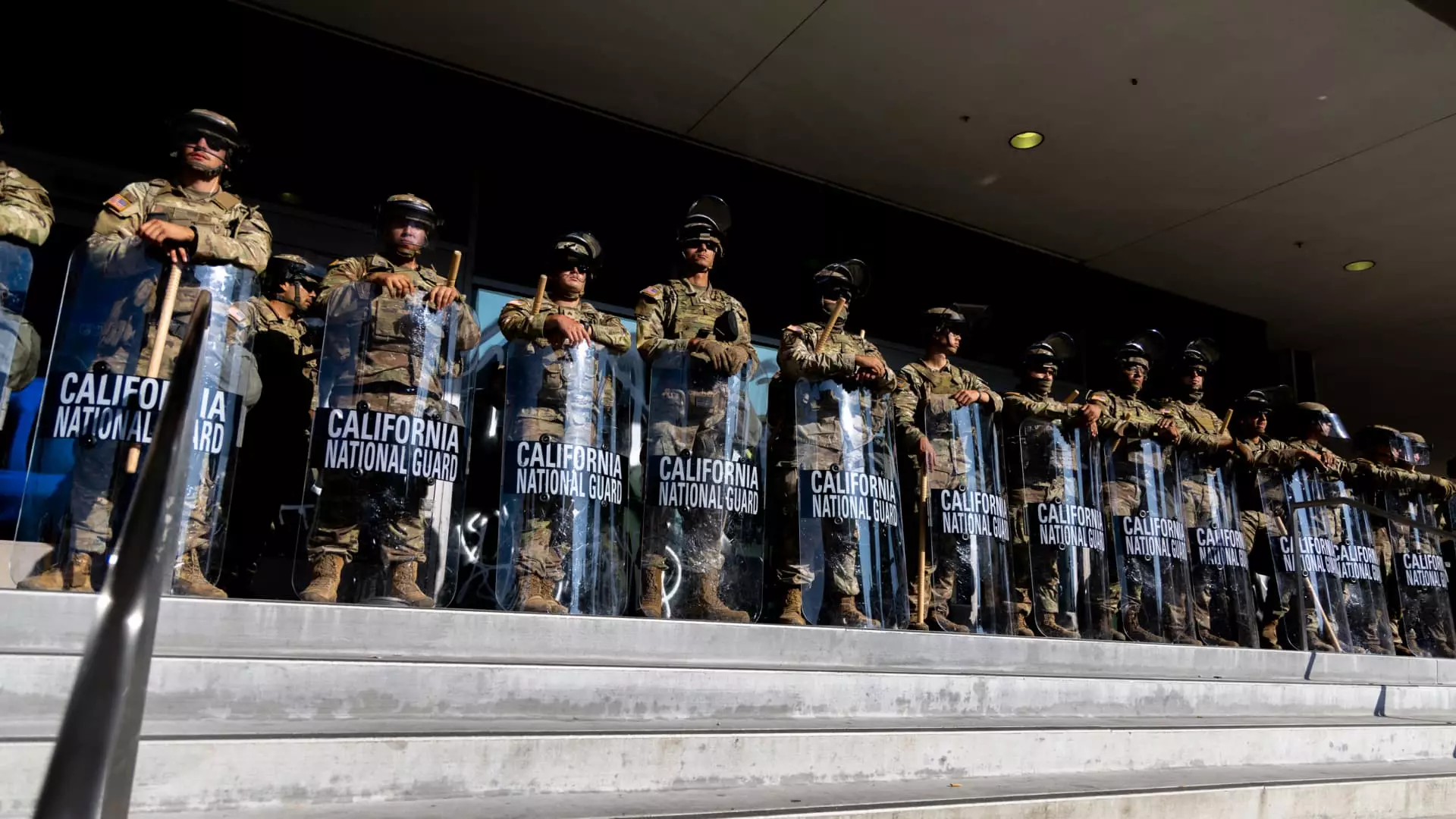The recent decision by a three-judge panel of the 9th U.S. Circuit Court of Appeals to allow President Trump to maintain control over National Guard troops deployed to Los Angeles is a concerning development that sheds light on the ever-expanding powers of the executive branch. In a climate where tensions over immigration and civil rights are already critically high, the implications of this ruling cannot be understated. The court’s ruling overturns a previous decision made by a lower court, which claimed that Trump acted unlawfully by activating the National Guard troops without the consent of California Governor Gavin Newsom.
This unprecedented move marks the first time since 1965 that a president has deployed state National Guard troops without the explicit permission from the state government. The importance of this historical context cannot be ignored; it underscores a fundamental separation of powers outlined in our Constitution that is being challenged. While it’s undeniable that Trump’s administration offered evidence citing violent protests that could justify federal intervention, does this really warrant such an aggressive action that undermines local governance?
The Question of Justification
Critics rightfully point out that the court’s findings are alarming. They note that while civilians may throw rocks during a demonstration, this does not constitute “rebellion” or warrant military intervention. U.S. District Judge Charles Breyer articulated a similar sentiment when he initially ruled against Trump, stating that the protests in Los Angeles fall “far short of ‘rebellion’.” The language used by the appeals court—grounding their decision in the significance of federal interest—may set a troubling precedent. If the federal government can justify the seizure of state resources due to disorderly conduct, what will prevent it from acting similarly under a myriad of other circumstances?
The expansion of federal control over state militias should raise red flags for anyone who values the decentralized power structure that governs the United States. The original intention of the National Guard was to aid local authorities, not to serve as a pawn in the federal government’s strategic maneuverings. By siding with the administration, the court appears to champion an interpretation of presidential power that could have severe long-term effects on the balance of federalism.
Political Ramifications and Opportunism
The implications of this court ruling also carry significant political ramifications. Trump’s administration is effectively utilizing the National Guard as a tool not only for enforcing federal immigration policies but also as a method to exert authority over Democratic-run states. It is a classic example of what happens when a political figure uses the machinery of state to promote an agenda that exacerbates division rather than resolving it.
By deploying troops to thwart protests which he characterizes as violent, Trump is sending a message that dissent is not only unwelcome but can also be met with state force. Governor Newsom’s legitimate concerns—regarding local authority, resource wastage, and incitement of further tension—are valid. As local communities grapple with the repercussions of heavy-handed actions, the potential for further unrest grows.
In short, while the administration insists this action was necessary for public safety, it also serves to underscore a deeper ambition to consolidate power. This alarming trend should be scrutinized, for if such authority is left unchecked, it risks normalizing federal overreach into spheres where local governance has long been the standard.
A Call for Reflection
Moving forward, we must critically reflect on these developments and engage in open dialogue regarding the limits of executive power. This ruling doesn’t just impact California or immigration policy; it sets the stage for how American citizens may react to future federal actions that intrude upon local governance. Legislative leaders and civil rights activists must unite to protect the balance of power, as it is the very foundation that allows for debate, dissent, and diversity of governance across state lines.
This moment in history compels us to ask: Do we truly want a system where the whims of the president dictate the mobilization of state troops? Or will we advocate for a framework that respects local governance and civil liberties? The narrative we choose to accept today will inevitably shape the nature of our democracy tomorrow.


Leave a Reply